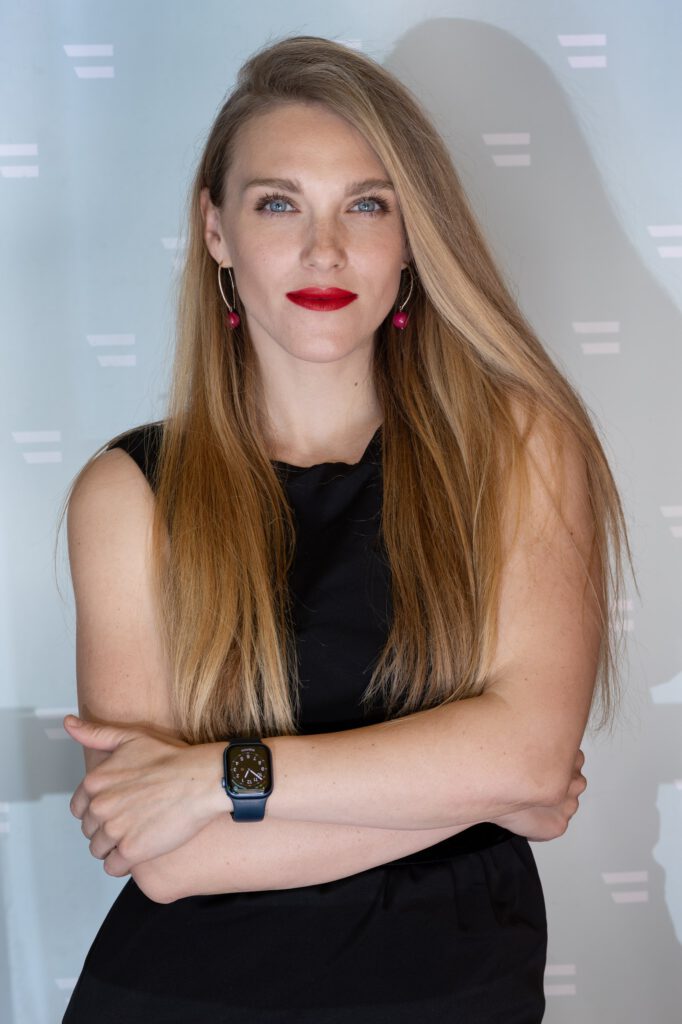
25 June 2024
Daria Driuchenko: “I truly believe that someone who works hard cannot remain an outsider”
Daria Driuchenko, Participant of the Professional Integration HUB 1.0 program (The Federal Ministry of Arts, Culture, Civil Service, and Sports of Austria).
- Age: 33 years old
- City in Ukraine where you lived before the full-scale invasion (forced relocation): Kyiv
- Specialization: film director, producer
PROFESSIONAL BACKGROUND
Before the war started, I had been working for eight years as the head director of TV shows at 1+1 Media Broadcast Channel, especially on “ZHVL” (The Lives of Famous People).
In 2018, I started my own production company, where we produced and filmed numerous series and movies with foreign collaborators who came to Ukraine for shootings. In 2022, I had to close my production company, which no longer exists.
FORCED EMIGRATION
When the war started, I was nine months pregnant and didn’t plan to move anywhere. However, after hearing the sounds of explosions, I realized it was safer to move, even if only for a couple of days, to my friends in the western part of Ukraine. While driving to Ternopil, I saw TV news about a woman who gave birth in a subway because of air alarms and missile attacks. That scared me so much that we decided to head to the border immediately.
After two nights sleeping in line at the border, we finally entered Europe on February 28th. Our plan was to go to Germany or Switzerland, where my film partners could help me organize my childbirth. But my labor contractions started unexpectedly, and my doctor advised me to stop driving immediately. The first major city we reached was Vienna.
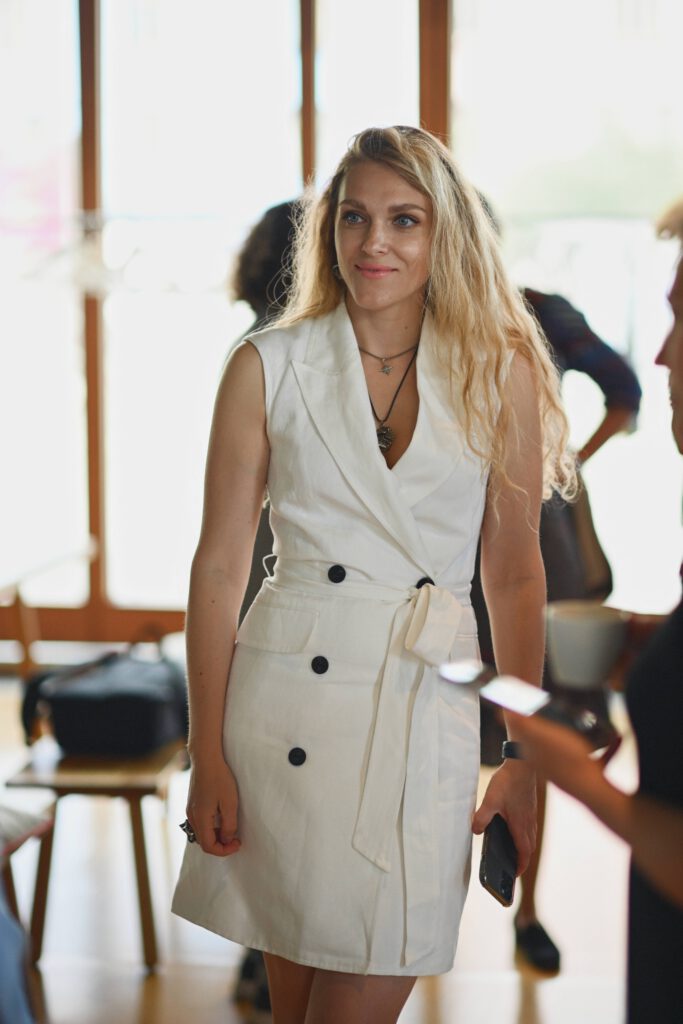
LIFE IN AUSTRIA
I didn’t know anyone in Vienna, which was frightening, but it was better than giving birth in the car. The next day, we went to a Ukrainian church and received all the necessary help we needed. I’d say it wasn’t me who chose Austria; Austria chose me.
The first couple of weeks were very hard psychologically. Vienna seemed very strict, full of rules, bureaucracy, a foreign language, and fear. We didn’t understand any road signs or announcements. On the second day, our car was towed, and we had no idea where it was. It was such a tough time that I cried every day, asking myself why I was going through all of this. But kind people, especially volunteers, helped a lot. Within a few days, I already had everything I needed for the baby from ordinary.
I was not on the front line of the war, but I fought every day in my own emigration war. In my opinion, every Ukrainian who moved abroad is going through very tough times. After all, being in another country and constantly finding your place under the sun is a huge job. Leaving everything behind and building a new life in a foreign country is a challenge that not everyone is capable of. My advice is: NEVER GIVE UP! I believe we can all overcome our troubles and live our best lives.
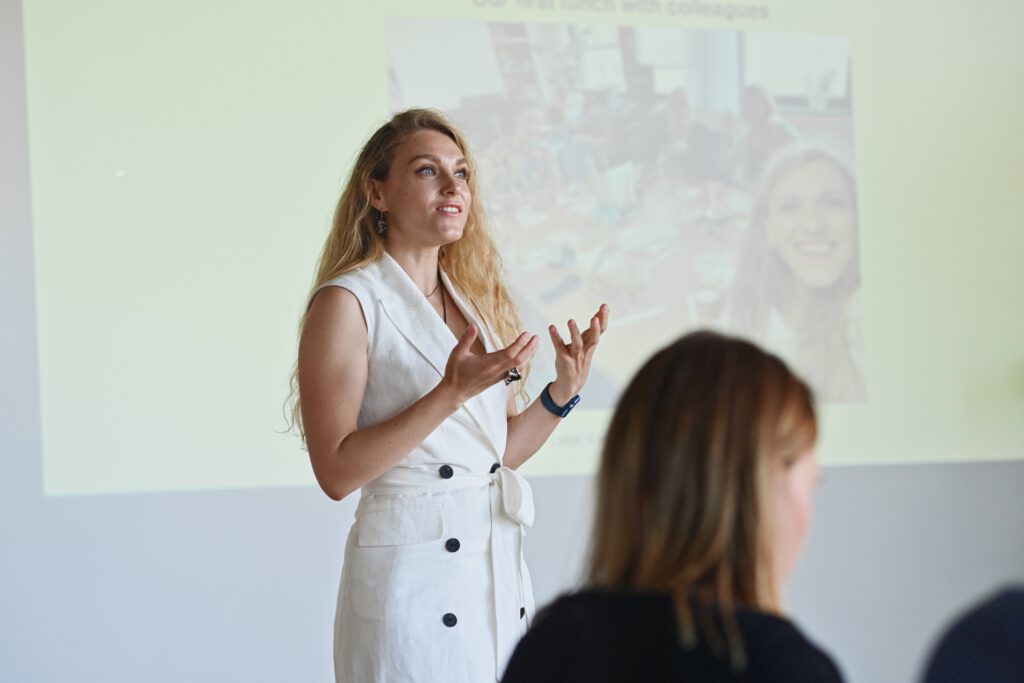
PROFESSIONAL INTEGRATION HUB
A friend from Portugal sent me a link to the Professional Integration HUB on Instagram. I hadn’t seen it before and immediately felt it was my chance. My expectations were to join an Austrian team wherever possible. I am still on my way to integration and continue pursuing my dream of professional fulfillment. I truly believe that someone who works hard cannot remain an outsider. But being a refugee is different. To be a good employee is not enough; you have to be the best. There is no chance for mistakes.
I am very impressed with the internship because I am in the best place I could imagine. This is the top, where all the decisions are made. Here, I can see what the market of culture looks like and who the people at the Ministry are. And believe me, they are great.
During my internship, I initiated several projects, including:
- A workshop for Ukrainian artists applying for grants and scholarships.
- Filming the project «Ukrainian Artists in Austria».
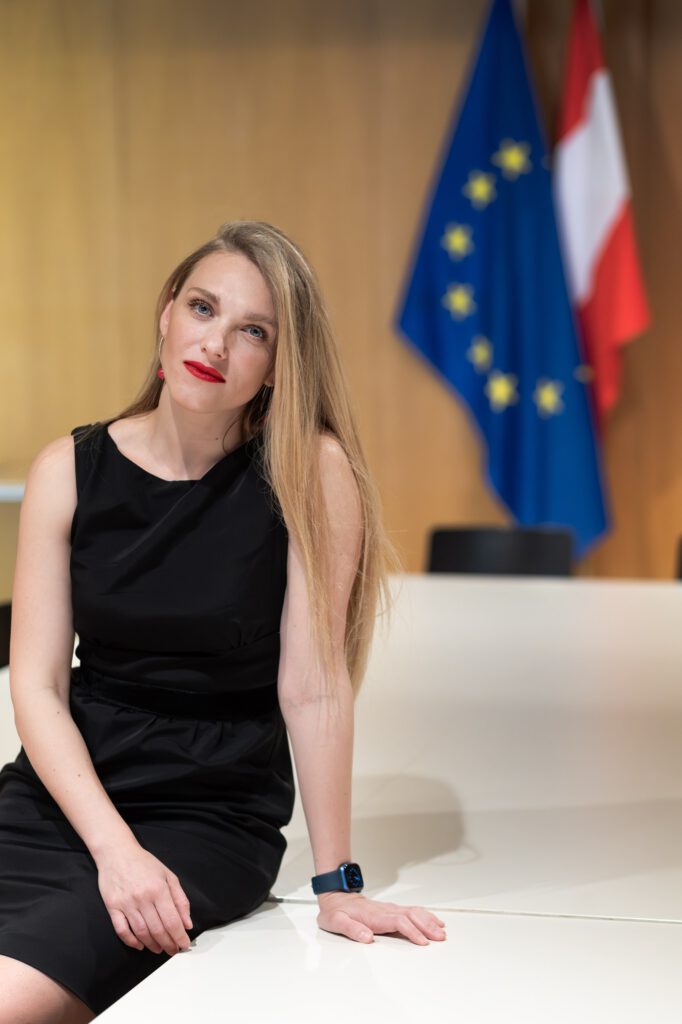
Forty people attended the workshop, and I received significant feedback from Ukrainians. The videos will be posted on the Ministry of Culture’s website and social media.
I have never worked at the Ministry of Culture in Ukraine, but I see that here, the Ministry of Culture is very committed to funding culture in all its forms. They are highly interested in modern art and in developing artistic taste among teenagers and young people. The institution is decentralized, with each department handling its own tasks. This approach minimizes the chance of corruption and allows them to be flexible, quick, and contemporary.
I really appreciate the tradition of having lunch together. The entire floor gathers to enjoy a meal and discuss news, problems, and other matters. They are very open-minded and always ready to help.
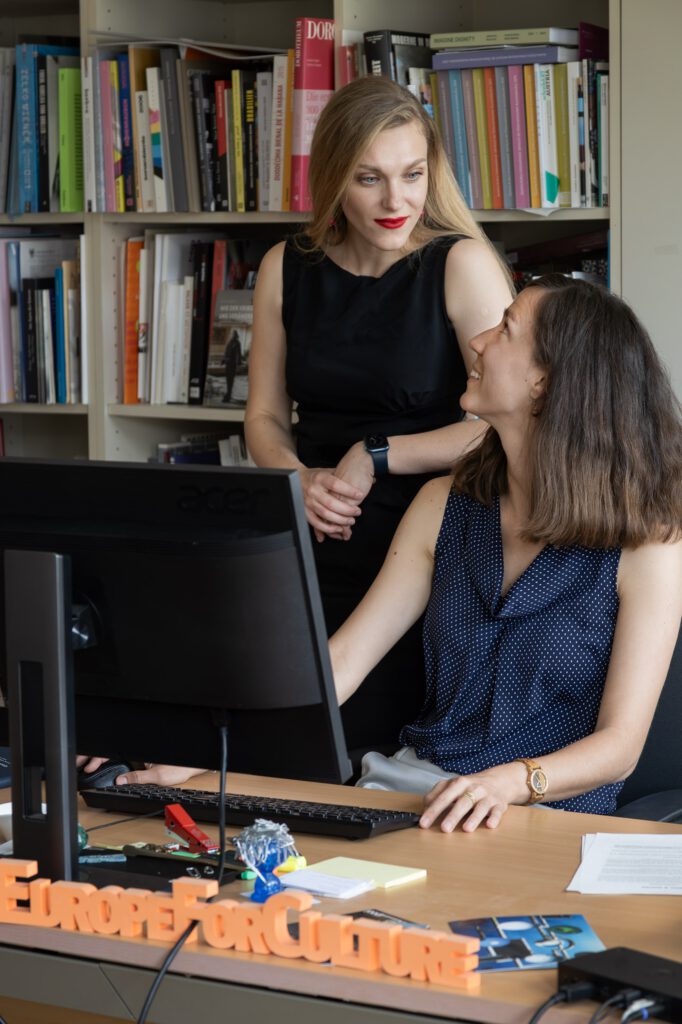
PLANS AFTER PARTICIPATING IN THE PROGRAM
My key insight is to be open and active, not afraid to propose new ideas, and not afraid of making mistakes. Just stay honest and do your best.
I still hope to have the opportunity to stay here in a full-time job, but that decision is not entirely in my hands. Though, I remain hopeful. If this doesn’t work out, I will continue looking for other opportunities and full-time employment because integrating into this country is my main goal (At the time of publishing this interview, Daria had already received an offer from the Federal Ministry of Arts, Culture, Civil Service, and Sports of Austria to continue cooperation – HUB).
I believe I can continue to help Ukrainian artists through the Austrian Ministry of Culture. I could assist in updating programs for Ukrainians; propose new initiatives, and more. Knowing people personally, speaking Ukrainian, and understanding their mindset and needs, I think I could be a good representative to support our nation abroad. Austrians help us as much as they can, but they will never fully understand our pain. I believe it’s essential for every institution to have a Ukrainian representative to advocate for our nation internationally. If we want to stay here, we must accept the rules of the game.